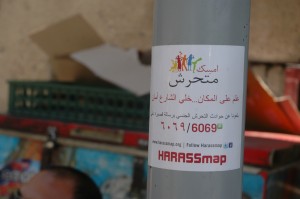I was walking with a girlfriend of mine and she was not showing any cleavage whatsoever. This man turns the corner and without being discreet starts staring at her boobs. The way he was staring was so blatantly obvious, like a hungry dog. As he walks pasts us, I say really loud, “You should look where your walking or you might fall.”
He looked back and I was staring and motioned to him in a funny way like, “Look where your walking,” and my girlfriend started laughing out loud. We both could tell he felt embarrassed.
– EM
Location: Dover, New Jersey


